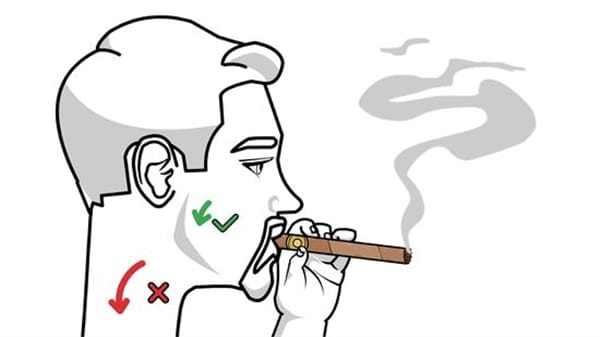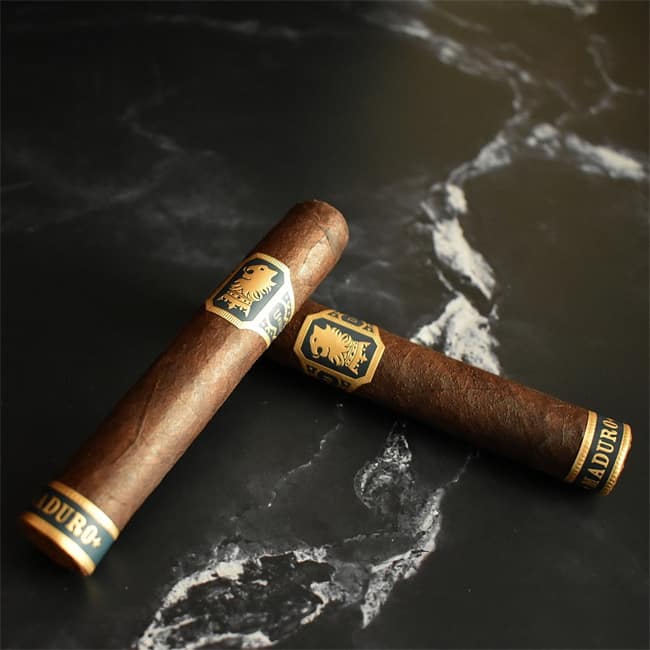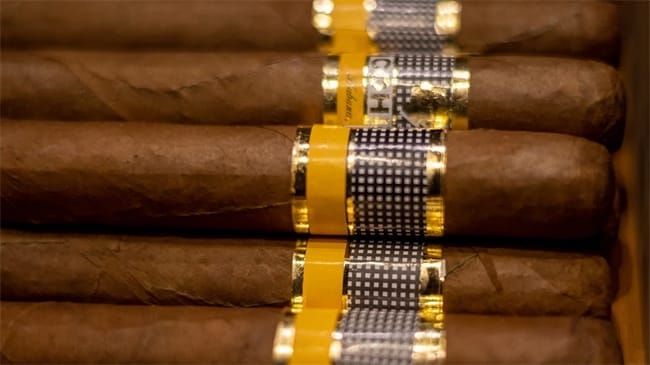Do Cigars Give You a Buzz- Beginners Guide
Yes, Cigars can give a nicotine buzz, especially from stronger ones, depending on factors like size, tobacco type, and smoking speed.
As a cigar aficionado for 20 years, I can tell you a hit of nicotine can be felt by smokers, particularly with heavier cigars. The size of the cigar, the type of tobacco used in its construction, and the speed at which it is smoked are some variables that might affect how strong the buzzing feeling is.

Can cigars give you a buzz? This is a question that many novice smokers frequently ask. Today in this article I will be answering this question in detail considering all the factors and associated terms about getting buzzed after smoking a cigar.
So stay tuned. Let’s have a deep dive;
1. Do cigars give you a buzz?
Yes, the cigar gives us buzz. The calming, tingling feeling you get when your body reacts to the nicotine in your favorite cigars is one of the primary reasons individuals smoke tobacco products. Even if you may not inhale cigar smoke, tasting one nonetheless releases nicotine into your body.

Cigars should be smoked gently and enjoyed for their flavour. Nicotine produces a dopamine rush by causing the release of neurotransmitters in the brain. Many experts call this the “buzz” in a cigar, a feeling of joy and well-being.
Why do cigars give you a buzz?
Cigars give a buzz primarily due to the nicotine content in the tobacco leaves from which they are made. Here’s how the process works:
- Nicotine Release: When you smoke a cigar, nicotine is released from the tobacco. Nicotine is a stimulant that affects the brain by releasing neurotransmitters such as dopamine and noradrenaline.
- Absorption Through Mucous Membranes: Unlike cigarette smoking, where nicotine is mainly absorbed through the lungs, cigar smoke is typically not inhaled deeply into the lungs. Instead, nicotine is absorbed more slowly through the mucous membranes in the mouth.
- Physical Effects: The absorption of nicotine stimulates the adrenal glands to release epinephrine (adrenaline), which increases heart rate, blood pressure, and respiratory rate, contributing to the “buzz” feeling. Nicotine also activates the brain’s reward pathways, enhancing feelings of pleasure.
Factors Influencing the Buzz
Nicotine Content: Cigars contain significant levels of nicotine, a stimulant. The nicotine is absorbed through the oral mucosa and lungs depending on whether the smoke is inhaled. The type and size of the cigar affect the amount of nicotine, with larger cigars typically containing more nicotine.
Absorption Rate: Cigar smoke’s pH is generally higher than cigarette smoke’s, allowing more nicotine to be unprotonated and readily absorbed through the oral mucosa. This can enhance the feeling of a buzz, especially since cigar smokers may not inhale the smoke as deeply as cigarette smokers.

Smoking Duration and Frequency: The longer and more frequently you smoke cigars, the more nicotine is absorbed, potentially increasing the intensity of the buzz.
Inhalation Depth: While many cigar smokers do not deeply inhale smoke, those who do may experience a stronger and quicker high due to more direct nicotine absorption into the lungs.
Type of Tobacco: The specific tobacco blend and how the cigar is made can also affect the buzz. Different tobaccos and blends can have varying levels of nicotine and other compounds that might influence the strength and sensation of the buzz.
2. A Nicotine Buzz: What Is It?
Different users will experience a nicotine buzz in different ways. As a stimulant, nicotine is typically linked to feelings of relaxation, arousal, and general pleasure. Nicotine causes varying bodily effects in various persons. You can experience Lightheadedness, tingling or “sparkling” sensations, and perhaps nausea if you’re not used to smoking or inhaling the cigar smoke.
The nicotine rush is often seen as a good, enjoyable feeling and is one of the main factors that draw enthusiasts back to tobacco, and particularly to cigars, repeatedly.

3. How the Cigar Buzz Operates
Cigars give you a buzz because of the nicotine they contain. Nicotine is a stimulant, and it can cause your heart rate to increase and your blood pressure to rise. Cigars aren’t smoked for a buzz though, but it’s common to experience one as cigars do contain large amounts of nicotine.

When you smoke a cigar, the nicotine passes through your palate and into your bloodstream. Your nervous system releases neurotransmitters in response to nicotine entering your brain. Dopamine is one of these; it makes you feel happy and pleasurable. Cigar buzz is this condition. Cigars are not meant to quench a nicotine desire, even if they contain more nicotine than cigarettes do. As you smoke carefully, take time to enjoy the cigar.
Furthermore, smoking a cigar won’t get you high. Unlike recreational drugs, which contain compounds that affect reality perception and cognitive function, tobacco does not contain these same substances.
4. Nicotine gives a cigar buzz, but what exactly is nicotine?
This chemical is present in tobacco and traceable nightshade vegetables, potatoes, tomatoes, eggplants, and sweet peppers. Nicotine stimulates your body when you consume it, accelerating the flow of information between your brain and body. It also causes an increase in the release of the pleasure neurotransmitters noradrenaline and dopamine.

Cigar smoke does not contain nicotine that is inhaled, unlike cigarettes. Rather, the nicotine enters your mouth through your palate. To enhance the experience, you can also breathe the smoke out through your mouth and back in through your nose, known as retro inhaling.
Regular smoking will cause you to develop a tolerance to nicotine, which will result in a more subdued high. Once more, this makes cigars a great alternative to cigarettes since they are often smoked slowly for a multi-hour buzz as opposed to a cigarette’s “quick hit.”
5. Amount of Nicotine in Cigar
Compared to cigarettes, a cigar has up to 100 times the amount of nicotine. The strength of the cigar is determined by its nicotine concentration. The likelihood of obtaining a buzz increases with intensity. Smoking a powerful cigar can give you a rush because of the nicotine.

6. Different Cigars create different buzz
It might result from your smoking speed. Nicotine enters our system more quickly the faster we smoke a cigar. Smoking a cigar is more enjoyable and less likely to cause a whirling feeling if you adjust yourself. In addition, smoking your cigars more slowly may help minimize the effects of a buzz; take a slow puff and savour the aroma.
If you smoke six or seven times in a minute, the nicotine rush won’t just hit you; it will also make you queasy.

Your tolerance to tobacco use may also have an impact. You need to be aware of the maximum amount of nicotine that your body can handle without overtaxing it and causing unintended effects. A thicker ring size will expose more tobacco to your palate, giving you a stronger buzz. Select a longer and slimmer cigar, then smoke it to the end for a gentler buzz that lasts longer.
Examining the size is a simpler method of predicting the various buzzes of different cigars. To find the total volume of tobacco in the stick, multiply the length by the ring gauge. Remember, more tobacco equals more nicotine.

7. How long does cigar buzz last?
About two hours. There is a difference between Cigarillos and Premium cigars, regular cigars that last for the duration of the buzz.
Your body begins to break down nicotine when you smoke a cigar; it is first transformed into cotinine and then completely broken down. The chemical that gives you the high, nicotine has a half-life of roughly two hours. This implies that the amount remaining in your blood will decrease roughly 50% after two hours. It will be half again after two hours, and so forth.

Although cotinine doesn’t provide the “cigar buzz,” it does have a significantly longer half-life of about 16 hours, so once you metabolize the nicotine, the rush should subside. It’s important to keep in mind that compared to cigarettes and most other tobacco products, cigars contain significantly more nicotine.
8. How Can I Prevent Being Buzzed by a Cigar?
If you wish to prevent cigar buzz, here are several methods to cure it:
a. Selecting the Perfect Cigar:
Select mild or medium-strength cigars if your tolerance to nicotine is lower. Take into account how much time you have to smoke before selecting vitola.
b. Smoke Cigar after Meal
It is advised that you smoke cigars following a meal. Smoking while hungry is not a smart idea.

c. Use of Sugar
A bag of sugar or a teaspoon is a fantastic way to lessen the effects of the cigar buzz.
d. Use of Soda
A carbonated beverage such as soda or water will be beneficial. A drink like this will clear the palate and reduce buzz.
e. Use of chocolate
Another way to get over the buzz is to have a bar of your preferred chocolate.

Cigar buzz vs cigarette buzz
The “buzz” from smoking cigars versus cigarettes differs primarily in intensity and duration, largely due to the nicotine content and method of consumption.
- Nicotine Content: Cigars typically contain much more nicotine than cigarettes. A single cigar can have 100-200 milligrams of nicotine, compared to 8-12 milligrams in a typical cigarette. This higher nicotine content can lead to a more potent and longer-lasting buzz when smoking cigars.
- Duration of Buzz: The buzz from cigar smoking usually lasts longer than that from a cigarette, reflecting the prolonged release of nicotine from the larger amount of tobacco in cigars and its slower consumption rate.
- Absorption Through the Mouth: Cigar smoke is typically not inhaled deeply into the lungs as cigarette smoke often is. Instead, nicotine is absorbed more through the mucous membranes of the mouth. This results in a different kind of nicotine absorption, which can affect the sensation and onset of the buzz.
- Quality of the Buzz: Many cigar smokers describe the buzz as more relaxing and pleasurable compared to the quicker, more intense rush of nicotine from cigarettes. This is due to the gradual absorption and the cultural practices of smoking cigars leisurely, which contrasts with the often quicker and more habitual smoking of cigarettes.
The bottom line
Smoking cigars can be a turn on. As a rule, the larger the size and the more concentrated it is, the more nicotine it contains, and the more euphoric it will be. I would say that if you are a novice smoker, don’t smoke large sized and highly concentrated cigars, it has the potential to make you feel uncomfortable.
Most people who smoke cigars do not inhale. Inhaling is uncomfortable and significantly increases the hazards associated with cigar smoking. Breathing in cigar smoke serves no purpose, either. In contrast to cigarettes, cigars’ nicotine enters the mouth through the lining of the mouth instead of the lungs. Nicotine is absorbed via the lungs rather than the mouth more efficiently by the body.
Are you looking for cheap cigars? If you need an OFFER, click below.
FAQ
Yes, the main ingredient in cigars that makes you buzz is nicotine, and even if you don’t reverse inhale, the nicotine enters the body, so it also makes you buzz.
Yes, cigars make you buzz, powerful ones, mainly because of the nicotine.
2 Hours. Because the nicotine is broken down a lot after the 2 hours have passed.
Yes, smoking a cigar can produce a “buzz” or a sense of feeling high. This sensation is primarily due to the nicotine content in cigars.
Yes, cigars can indeed give you a buzz without inhaling the smoke. This buzz is primarily due to the absorption of nicotine through the mucous membranes in the mouth rather than through the lungs.
Smoking cigars does not produce a “high” in the traditional sense associated with psychoactive substances like THC. However, cigars can induce a “buzz” due to their nicotine content, which is a stimulant.
Yes, Cuban cigars can indeed give you buzz due to their high nicotine content.
Yes, cigars can buzz you even if you don’t inhale the smoke. This is due to the absorption of nicotine through the mucous membranes in the mouth rather than through the lungs, which is the typical route with cigarette smoke.






